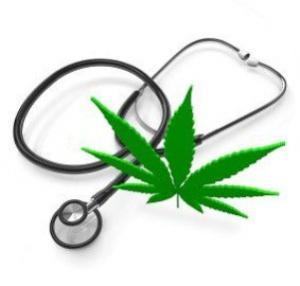Although overall drug overdose deaths declined last year, there were big increases in meth- and cocaine-related ODs. What's up with that?
A new book provides an eye-opening look at peyote and mescaline and the men who did very strange things with them.
Dispenaries are now doing business in Louisiana, a New Mexico judge orders the state to allow out-of-staters to participate in the medical marijuana program, and more.
A Florida deputy goes rogue, an Arkansas volunteer narcotics deputy uses snitches to steal stuff, a Georgia narcotics office manages to destroy the local dope squad, and more.
A meth-stealing Oklahoma narc heads to prison, a batch of Louisiana prison guards get indicted in a "large-scale" drug operation at the Angola prison, and more.
A federal appeals court has ordered the DEA to promptly respond to a lawsuit over stalled medical marijuana research applications, a Florida legalization initiative passes an early milepost, a psychedelic activist group goes national, and more.
Sen. Dick Durbin (D-IL) has filed a marijuana rescheduling and research bill, Democratic presidential contenders spar over drug and criminal justice policy, and more.
Federal prosecutors accuse the president of Honduras of participating in a drug trafficking conspiracy, the US and China squabble over fentanyl, Colombia coca production declined slightly last year, and more.
A key Republican senator signals an openness to marijuana banking reforms, a Florida state rep files a decriminalization bill, the first shipments of medical marijuana have gone out to Louisiana dispensaries, and more.
Luxembourg is moving to be the first European country to legalize marijuana, Hondurans take to the streets to protest their "narco" president, a New Mexico judge opens the state's medical marijuana program to out-of-staters, and more.
That New Jersey legalization bill may yet rise from the dead, the CDC wants more naloxone access in rural areas, Ohio's largest city just quit prosecuting small-time pot busts, Bernie Sanders vows to use an executive order to federally legalize marijuana, and more.
There will be legal pot smoking at Outside Lands in San Francisco this weekend, the Trump administration moves forward with plans to allow drug testing of unemployment recipients, fighting over coca farms and cocaine smuggling routes in Colombia is generating large refugee flows, and more.
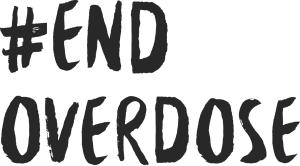
August 31 is International Overdose Awareness Day, overdoseday.com
Last month, the Centers for Disease Control and Prevention (CDC) released
provisional data indicating that the country's overdose crisis peaked in late 2017 and actually declined by 5.1 percent between then and late 2018. While that is long-awaited good news, it's not great news: The annual number of drug overdose deaths was still more than 68,000, and that number is still more than a third higher than in 2014, when the overdose epidemic was already well underway.
The fever may have broken, but the patient is still in critical condition. And there is one bit of data in the CDC report that is definitely not good news: While overall overdose deaths finally began to decline, overdose deaths involving stimulants were on the increase. For cocaine, the death toll started rising in about 2012; for psychostimulants (overwhelmingly methamphetamine), the climb began a couple of years earlier.
But the new data show a dramatic uptick in overdose deaths with stimulant involvement last year. Fatal overdoses where cocaine was mentioned were up 34 percent and those where methamphetamine was involved were up 37 percent. That's more than 14,000 people dying with cocaine in their systems and more than 10,000 dying with meth in their systems.
What is driving this spike in stimulant-involved overdose deaths? Some of it can be attributed to rising use levels for cocaine and meth, which can in turn be linked to increased supplies. Meth seizures were up dramatically last year and recent DEA reports suggest that cocaine availability has increased steadily since 2012, particularly in the south and east coast of the US. The UN Office of Drugs and Crime suggests that cocaine production and manufacture are at the highest rates ever recorded.
"There is some research to suggest that we are seeing slightly higher rates of recent cocaine and methamphetamine use compared to rates of use just a few years ago," said Sheila Vakharia, PhD, a researcher with the Drug Policy Alliance (DPA). "But increased rates of use do not always mean increased rates of addiction or overdose. Death rates are influenced by a variety of factors, including age of the user, the amount used, and other substances used, among other things."
They are also influenced by race, gender, and geographic location. A recent study looking at data from 2012 to 2015 and examining race and gender trends by drug found that white men had the highest rates of methamphetamine-involved overdose deaths more generally, while black men had highest rates of cocaine-involved overdose deaths. These racial differences persisted for women of each race as well, although their overdose rates were lower than the men in their racial groups.
"Methamphetamine-involved deaths are high on the West Coast and Midwest, while cocaine-involved deaths are high on the East Coast. We are actually seeing that in some Western states that methamphetamine is either the top drug involved in overdose deaths or among the top drugs included in overdose deaths," Vakharia noted.
"Based on the latest CDC data, Nevada’s overdose crisis has been driven by prescription opioids and methamphetamine for the past several years- in fact, methamphetamine has been the #1 drug involved in overdoses there since November 2016. Similarly, in November 2016, Oregon saw methamphetamine become the top drug involved in overdose deaths," she specified.
"Meanwhile, the East Coast is seeing the involvement of cocaine in overdoses increase as well. While no eastern state has cocaine driving their overdose crisis, places like DC are seeing fentanyl as the top driver of deaths followed by cocaine. Last year, while fentanyl contributed to the majority of overdose deaths, there were more cocaine-involved deaths than heroin or prescription opioids," Vakharia added.
It appears that it is not rising simulant use rates but the use of multiple substances that is largely driving the overall stimulant death toll upwards. A CDC report from May suggests that, from 2003 to 2017, almost three-quarters of cocaine-involved deaths involved an opioid while half of all methamphetamine involved deaths involved an opioid.
"Those CDC numbers are based on autopsy reports," said Daniel Raymond, deputy director of planning and policy for the Harm Reduction Coalition (HRC). "In a lot of cases, there are multiple drugs involved, and just because an overdose involves a stimulant, it doesn't mean it was caused by stimulants."
Overdose deaths caused by stimulants look different from those caused by opioids, Raymond noted: "Fatal stimulant overdoses come from strokes, seizures, heart attacks, and potentially overheating," he said. "It's not like an opioid overdose with respiratory depression," he said.
"Some of this may be more a reflection that we still have lots of people dying from opioid-related overdoses, and it's just that more of them are also taking meth or cocaine, but the primary cause of death is the respiratory depression associated with opioid overdoses. In a lot of the cocaine deaths, medical examiners are finding both cocaine and opioids."
"We are seeing that toxicology reports of people who died with stimulants in their systems also had fentanyl or other opioids in their system," DPA's Vakharia concurred. She then listed a number of possible explanations:
- "This is accidental. Cross-contamination of a stimulant with an opioid like fentanyl could have been accidental and occurred during transport or packaging, and opioid-naïve stimulant users were accidentally exposed to opioid-contaminated stimulants."
- "This is due to co-use of opioids and stimulants in the form of speedballs (with cocaine) or goofballs (with methamphetamine), where both are used together for the desired effect of immediately stimulating high, followed by the euphoria of the opioid."
- "Stimulants are being willfully adulterated with opioids by suppliers/sellers, and stimulant users naïve to opioids are overdosing because they have no tolerance. (We at DPA dispute this theory, because it makes little sense why a seller would want to kill off a customer.)
- "Someone might have used a stimulant and opioids at different times within the past few days, but their toxicology could be showing the recency of use."
What Is to Be Done?
The Drug Policy Alliance and the Harm Reduction Coalition have both released reports on the rise in stimulant-involved overdose deaths, Stimulant Use: Harm Reduction, Treatment, and Future Directions from the former and Cocaine, Speed, and "Overdose": What Should We Be Doing? from the latter. Raymond and Vakharia took a few minutes to address those topics, too.
"There is no naloxone for stimulant overdose," Raymond pointed out. To reduce those overdoses "is about developing harm reduction strategies and outreach specifically targeting stimulant users," he said. "We spend so much time focusing on the opioid overdose crisis that our messages are oriented toward that. If we want to start a conversation, we need to not just tack it onto the opioid messaging. Even if you're not an opioid user, we want to talk about symptoms and warning signs."
HRC has moved in that direction, said Raymond. "We did some work on stimulant overdoses, we talked to a lot of people who used stimulants, we put out a guide -- Stimulant "Overamping”"Basics -- and went with the terms people used. Using 'overamping' opened a space for conversation for people who didn't identify as heroin users. If you talk overamping instead of overdosing, stimulant users have had that experience of using too much. Part of it is really just listening to the people who use the drugs. In harm reduction, we learn from the people we work with."
"People who use stimulants need access to sterile equipment beyond syringes, since many stimulant users smoke, so we are talking about sterile smoking equipment like pipes and filters," Vakharia said. "We need to teach users how to stay safe while using -- make sure to take breaks for hydration and to eat, get enough rest. It is easy to lose track of time when you've been up for days and when you have no appetite. This also puts undue stress on your heart and can exacerbate health issues," she noted.
"For many people, we should also talk about distributing safer sex supplies, because many people engage in risky sexual practices while they are using," Vakharia continued. "We also need to educate users on the risks associated with mixing different classes of drugs and the impact it can have on your body, knowing your limits, keeping naloxone on hand in case you are using opioids too, and not using alone."
It's not just harm reduction that's needed, though. Other policy prescriptions could help reduce the toll.
"Medicaid expansion and policies to increase access to basic health care and mental health care, as well as substance use treatment can greatly improve the health and well-being of people who use all drugs," Vakharia said. "And whether opioids are a person's primary drug or not, expanding access to naloxone helps anyone who is using them. Similarly, expanding Good Samaritan laws that reduce barriers to calling 911 can only help."
And then there's not treating drug uses like criminals.
"Decriminalizing drugs and paraphernalia would be a huge step forward," said Vakharia. "We know that contact with the criminal justice system increases harms and also presents barriers to going into recovery, which impacts job prospects, the ability to find work, and things like that."
"Drug decriminalization is crucial," said Raymond. "Criminalization just makes everything worse. It makes people more fearful of seeking help, and ends up locking so many people up in ways such that when they leave jail or prison, they're even more vulnerable. All of our work in harm reduction takes place in this context of mass criminalization. That keeps us swimming against the tide."
This article was produced by Drug Reporter, a project of the Independent Media Institute.
The Drug Policy Alliance is a funder of both Drug Reporter and Drug War Chronicle.
back to top
Mescaline -- the psychedelic alkaloid found in only two species of Western hemisphere cacti, the peyote of north-central Mexico and the San Pedro found thousands of feet up the dry side of the Peruvian Andes -- hasn't had a recreational following in decades. As Mike Jay, the author of the just-released Mescaline: A Global History of the First Psychedelic, notes, the only place one can find it anymore is occasionally on sites on the dark web along with other exotic psychedelics. As a psychedelic alkaloid, it has been replaced by LSD, which is hundreds of times more potent and thus more user-, research- and smuggler-friendly.
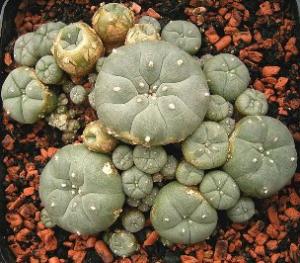
psychedelic peyote cactus, the source for mescaline (Creative Commons)
But, as Jay relates in his highly readable recounting, even before LSD famously popped into existence in 1943, mescaline had been synthesized by German scientists in 1919. Mescaline has been circulating in the medical and scientific communities, as well as among more outrè elements, including mystic cultists and artistic fringe movements, for a century. Before being displaced, mescaline paved the way for the psychedelic wave that LSD rode into the history books.
With ritual use now believed to go back more than 3,000 years in Peru's ChavÃn de Huántar -- where the San Pedro still grows among the ruins -- and back 5,000 years in Mexico, the plant is indeed deeply rooted in indigenous cultures. It has withstood the arrival of the West and may even be profiting from a renewed Western interest in the South American psychedelic circuit thanks to the ayahuasca drug tourism boom.
Although the "devil's root" was banned by the Inquisition in Mexico -- dozens were prosecuted during the colonial era -- neither the cross nor the sword could vanquish it. Tribes of Mexico's remote northwest, such as the Huichol and the Tarahumara, kept peyote traditions alive. (The Huichol have even managed to turn their peyotism and the world-famous art it inspires into a community-sustaining industry.)
By the mid-1800s, Apaches whose lands straddled the US-Mexico border and who made raiding forays far south into Mexico brought the peyote ritual back with them and introduced it to the tribes of the plains and the American Southwest. Caught up in the churn of forced resettlement, tribal members mingled like never before on the Oklahoma reservations where they were interned, and the peyote ritual metamorphosed into a pan-tribal sacrament.
Early in the 20th century, Apaches, Comanches, Kiowas and others who swore by peyote moved to formalize its status, founding the Native American Church (the first use of the phrase "Native American" in its modern sense) in 1918 to act as the ritual's face to white America and the government in Washington. A century later, the Native American Church is thriving, now counting more than 250,000 members and most recently making strong inroads among the Navajo.
And peyote's Peruvian cousin, the San Pedro, is also thriving. It, too, has benefitted from the South American psychedelic tourism boom inspired by ayahuasca, and it has been cultivated in California for decades now, where neo-shamans are all-too-happy to guide you on an interior adventure. Unlike peyote, San Pedro is still legal in the US -- as long as you don't try to extract the mescaline.Whether for religious and spiritual purposes or to enhance the derangement of the senses, the mescaline alkaloid has a long and storied history. And it has attracted the attention of some remarkable individuals along the way. Here are seven men who rode Mescalito's white horse to some strange places indeed.
1. Chief Quanah Parker. Born of a captive white woman and a Comanche father, Quanah Parker overcame his half-breed status to become a famed Comanche warrior who rebelled against being forced onto the reservation at Fort Sill, Oklahoma, in the 1880s. An adroit politician, Parker very ably maneuvered to protect the traditions of his people while presenting an acceptable face to Washington. As the millenarian Ghost Dance movement roiled Native America in the late 1880s (and led to the Wounded Knee massacre of 250 Lakota men, women, and children in 1890), Parker rejected its radicalism and instead championed the peyote ceremony, becoming the church's most famed "roadman," or ceremony leader. While Parker fended off Christianity throughout his life, he portrayed the peyote ceremony not as a challenge to Christianity but as a complement, a stance he deemed necessary to protect the culture and the church. "The white man goes into his church and talks about Jesus," Parker famously said, "but the Indian goes into his tipi and talks to Jesus."
2. James Mooney. Enthralled from his youth with the romance of the American Indian, James Mooney parlayed his obsession into a career as America's "Indian Man" as he used positions in the federal government to attempt to protect native cultures from the government's assimilationist (read: cultural genocide) policies toward the tribes. Assigned to Fort Sill, Mooney attended Ghost Dance ceremonies and shared Parker's worries that the movement could have disastrous repercussions. In 1891, Mooney became the first white man to participate in the peyote ritual and became an ardent proponent of it before white America. For Parker, Mooney was "the only white man who knows our religion." He also played a pivotal role in the formal founding of the Native American Church in 1918. But Mooney was also a vital link between peyote and mescaline; an advocate of the cactus' potential therapeutic uses, he made peyote buttons available to drug companies and academic researchers, leading directly to mescaline's synthesis in a German lab and its emergence into the world at large.
3. Aleister Crowley. James Mooney was the first white man at a peyote ceremony, but British occultist and drug-dabbler Aleister Crowley was the first Westerner to take peyote methodically over a period of years, and the first to use it as a non-native ritual sacrament. Introduced to psychoactive drugs in 1898, this high priest of the Order of the Golden Dawn and author of Diary of a Drug Fiend included mescaline along with alcohol, hashish, "extract of opium," and fruit juice in the "Cup of Libation" that he passed around at avant-garde parties in London just after the turn of the 20th century. Thanks in large part to Crowley, mescaline began to make its way more broadly into fringe cultural and artistic scenes.
4. William Burroughs. The always drug-obsessed Beat icon, long-time heroin addict and author of Junkie and Naked Lunch realized early on that peyote wasn't covered under the Harrison Narcotics Act and promptly sourced some from Mexico in 1952. As Jay relates, Burroughs says it "felt 'something like a benzedrine high. You can't sleep and your pupils are dilated. Everything looks like a peyote plant.'" When Burroughs finally did get to sleep, the peyote gave him nightmares: "Me and about five other chlorophyll addicts are waiting to score on the landing of a cheap Mexican hotel. We turn green, and no one can kick a chlorophyll habit. One shot and you're hung for life. We are turning into plants."
5. Allen Ginsberg. Burroughs' fellow Beat auteur also gobbled down the cactus buds after scoring some in Greenwich Village, the epicenter of the New York City Beat scene, in 1952. After pondering the beauty of a cherry tree and "grinning idiotically" as he listened to the music of Tito Puente, Ginsberg decided that "Peyote is one of the world's greatest drugs. I have to find, among other things, a new word for the universe. I'm tired of the old ones." Ginsberg continued to use peyote over the next few years as he oscillated between New York and San Francisco. "It was like telepathy, like electricity," he recalled. "It could turn your eyes into X-rays so that you could see the insides of things." One 1954 trip in a Nob Hill apartment had Ginsberg staring out at the city in the mist and fog, where the massive buildings of downtown were transformed into the "robot-like skullface of Moloch," the bloodthirsty Canaanite god "whose eyes are a thousand blind windows." From this vision derived the central image of part II of the Beat classic Howl, in which his generation was being sacrificed to the idols of money and technology.
6. Aldous Huxley. The renowned British author of Brave New World (where the fictional drug soma played a key role) almost singlehandedly made mescaline a household word with the publication in 1954 of The Doors of Perception, which he composed after ingesting 400 milligrams of the drug on "a bright May morning" in 1953. He described the experience as "without any question the most extraordinary and significant experience available to human beings this side of the Beatific Vision." It was "what Adam had seen on the morning of his creation -- the miracle, moment by moment, of naked existence." For Huxley, mescaline represented both a potential medical and scientific breakthrough -- the working hypothesis was that it might be an unlikely cure for schizophrenia -- and an opportunity for profound spiritual experience. Along with Albert Hoffman's 1943 LSD trip, Huxley's ingestion of mescaline has become a seminal moment in the psychedelic revolution.
7. Carlos Castaneda. The UCLA anthropology graduate student influenced a generation with his publication of The Teachings of Don Juan: A Yaqui Way of Knowledge and 11 sequels. In the series, Castaneda claimed to have learned the shamanic path of the nagual (a shaman who claims to be able to change into animal form through rituals and experiences with psychoactive drugs) from Don Juan Matus thanks to peyote. Although Castaneda's work has since been denounced as a hoax, a fraud, and a pack of plagiarism, its influence in the 1970s and beyond was undeniable, and even some of the anthropologists whose work he lifted whole-cloth say that his message of spiritualism and respect for native cultures needed to be heard. Still, the title alone should have been a giveaway: The Yaquis, who lived in the extreme northwest of Mexico, had no history of participating in any peyote rituals.
These are just a handful of the fascinating people who have interacted with the fascinating alkaloid. For those of us interested in the culture and history of psychedelics, Mike Jay has plenty more people to meet and stories to tell. Pick up the book and get the whole story.
back to top
Dispenaries are now doing business in Louisiana, a New Mexico judge orders the state to allow out-of-staters to participate in the medical marijuana program, and more.
Iowa
Iowa Panel Backs Including Chronic Pain, But Not PTSD, Opioid Dependency. The Iowa Medical Cannabidiol Board last Friday approved a recommendation to add chronic pain as a qualifying condition under the state's medical marijuana law. But the board drew criticism from patients advocates for not making the same recommendation regarding PTSD, opioid dependency, and other medical conditions. The board could revisit the issue in November if more data or research is available.
Louisiana
Louisiana Sees First Medical Marijuana Shipment to a Dispensary. At least nine medical marijuana dispensaries are set to open this week and begin selling product after GB Sciences, one of two state-licensed growers, began shipping to them on Tuesday. The move comes after state regulators completed final tests and cleared the shipments for release.
Nebraska
Nebraska Attorney General Argues Legalizing Medical Marijuana Is Unconstitutional. State Attorney General Doug Peterson (R) issued an opinion last Thursday saying federal law preempts state medical marijuana laws and that an effort to legalize medical marijuana in the state "would be, therefore, unconstitutional." On the other hand, more than 30 states have legalized medical cannabis since 1996, but the Supreme Court has never ruled that state legalization regimes are preempted by federal law. [Ed: This Cato brief by Vanderbilt law profession Robert Mikos explains why federal law probably does not preempt state law in ways that would interfere with state legalization laws. -DB]
New Mexico
New Mexico Judge Broadens Medical Marijuana Program. A New Mexico judge has ordered state officials to issue medical marijuana cards to all qualifying patients, including those who live outside the state. The ruling came in response to an emergency petition filed by patients, after authorities failed to act on a state law which took effect in June that removed the state residency requirement.
Utah
Utah Supreme Court Rejects Bid to Overturn State Law That Replaced Prop 2. The state Supreme Court on Tuesday rejected a petition that sought to overturn the state law that replaced Proposition 2, the ballot initiative to legalize medical marijuana. The legal challenge, filed by a group called The People's Right, aimed to restore Proposition 2 as it was approved by voters in November. But while the petition was unsuccessful, other supporters of the ballot initiative say they are optimistic that the law will see changes in the next legislative session.
[For extensive information about the medical marijuana debate, presented in a neutral format, visit MedicalMarijuana.ProCon.org.]
back to top
A Florida deputy goes rogue, an Arkansas volunteer narcotics deputy uses snitches to steal stuff, a Georgia narcotics officer manages to destroy the local dope squad, and more. Let's get to it:
In Sunnyvale, California,
a San Jose police officer was arrested last Friday on drug and firearms charges. Officer John Tompkins, 48, went down after information gathered in another drug bust led to him. Police obtained a search warrant for his home and discovered drugs and guns in his possession.
In Stuart, Florida, a former Martin County sheriff's deputy was arrested Monday for falsifying drug arrests during traffic stops. Steven O'Leary wrongfully arrested at least 14 people on bogus drug charges, with some of those arrested spending as long as 80 days in jail. He's facing 17 counts of official misconduct, 13 counts of false imprisonment, nine counts of making false statements, eight counts of tampering with evidence, one count of petty theft, and one count of battery (for kicking a man during an unlawful arrest).
In Little Rock, Arkansas, a former volunteer Arkansas County sheriff's deputy was sentenced last Thursday to 30 months in federal prison for extorting confidential informants to steal an ATV and firearms. Charles David Chastain, 48, had been assigned to the Tri-County Drug Task Force, where he used confidential informants to develop drug cases. He then threatened the snitches with refusing to give them credit for cooperating unless they stole items for him, including an ATV worth $25,000. But one of his snitches snitched him out to the feds. He was convicted of Hobbs Act extortion, attempted Hobbs Act extortion, and receipt of a firearm with intent to commit a felony.
In Brunswick, Georgia, a former Glynn County narcotics officer was sentenced July 20 in a case that caused the implosion of the countywide narcotics squad. James Cassada, copped to two counts of violation of oath of a public officer and agreed to cooperate and testify in future proceedings into the DA's ongoing investigation of the Glynn-Brunswick Narcotics Enforcement Team. Cassada went down after coworkers complained that he had sexual relationships with two confidential informants and his superiors asked the state Bureau of Investigation to conduct an inquiry. That led to disciplinary action against two other narcotics officers and the dissolution of the dope squad. The scandal has so far resulted in 75 drug cases being dismissed. Cassada got 10 years' probation but has to do four to six months in a Probation Detention Center first.
back to top
A meth-stealing Oklahoma narc heads to prison, a batch of Louisiana prison guards get indicted in a "large-scale" drug operation at the Angola prison, and more. Let's get to it:
In Cleveland, Ohio,
a Cuyahoga county jail guard was arrested Tuesday for allegedly smuggling drugs into a state prison earlier this year. Angelique Lykes, 28, a new hire, was arrested while touring the jail as part of the hiring process on charges that she smuggled marijuana to an inmate at the Richland Correctional Center in Mansfield.
In Baton Rouge, Louisiana, five former state prison guards were among 22 people indicted Tuesday by a federal grand jury in a "large-scale" operation that smuggled drugs into the state penitentiary at Angola. Jeffery Day, age 34, a former correctional officer at Angola, is charged with conspiracy to distribute controlled substances; Tommy Carter, Jr., age 31, is charged with conspiracy to distribute controlled substances and possession with intent to distribute 50 grams or more of methamphetamine; April Mathews, age 25, is charged with conspiracy to distribute controlled substances; Precious Shelvin, age 33, is charged with conspiracy to distribute controlled substances; and Tichina Williams, age 24, is charged with conspiracy to distribute controlled substances.
In Tulsa, Oklahoma, a former Mayes County sheriff's narcotics investigator was sentenced last Friday to six months in federal prison and six months of home detention for stealing methamphetamine that had been seized as evidence. Brett Alan Mull, 48, had pleaded guilty in April to tampering with or destruction of evidence and acquiring methamphetamine through deception. Mull had been stealing meth throughout 2017 but went down after suspicious investigators discovered altered evidence submittal envelopes, drug paraphernalia, and methamphetamine during searches of Mull's home.
back to top
A federal appeals court has ordered the DEA to promptly respond to a lawsuit over stalled medical marijuana research applications, a Florida legalization initiative passes an early milepost, a psychedelic activist group goes national, and more.
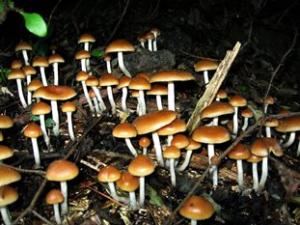
SPORE is taking its psychedelic activism nationwide through a new nonprofit. (Creative Commons)
Federal Court Orders DEA to Explain Marijuana Research Block. The US Court of Appeals for the DC Circuit on Monday ordered the DEA to respond to a lawsuit about stalled applications for research-grade marijuana growers. The lawsuit was filed by the Scottsdale Research Institute, which has submitted an application that has never been acted on. The court on Monday ordered that the DEA "file a response to the amended mandamus petition, not to exceed 7,800 words, within 30 days of the date of this order."
Florida Activists Clear First Hurdle to Putting Marijuana Legalization on 2020 Ballot. Sensible Florida, the group behind the legalization initiative, announced Monday that it had met an early requirement in the process of getting the measure on the November 2020 ballot. The group has gathered some 76,000 valid voter signatures, or one-tenth of the number required to put the measure on the ballot. This triggers a state Supreme Court review of the initiative's language.
Psychedelics
Psychedelic Activists Group Goes Nationwide. The group that organized the successful Denver psychedelic mushroom decriminalization initiative is going national. SPORE, the Society for Psychedelic Outreach and Reform and Education, announced Tuesday that it will apply for 501(c)(3) status, allowing the organization to reach more people. "Our mission is to transform public opinion to normalize and decriminalize the responsible use, possession and cultivation of psilocybin mushrooms and other psychedelic plants and fungi," said Kevin Matthews, the group's executive director. "We offer resources like education, community and organizational support, policy guidance, and we're also advocates for individuals, communities and organizations that are interested in pursuing or exploring psychedelic drug policy reform both here in Colorado and nationwide."
International
Colombia Homicides Jump as Traffickers, Rebels Fight Over Former FARC Areas. The national homicide rate rose for the first time in a decade last year, driven largely by battles for control over coca-growing areas that had previously been controlled by the leftist guerrillas of the FARC. The FARC demobilized as part of the 2016 peace accords, but that left a vacuum in coca-growing areas it once dominated. Now, FARC dissidents, other guerrilla groups, and criminal drug trafficking groups are fighting over who will control the fields.
back to top
Sen. Dick Durbin (D-IL) has filed a marijuana rescheduling and research bill, Democratic presidential contenders spar over drug and criminal justice policy, and more.
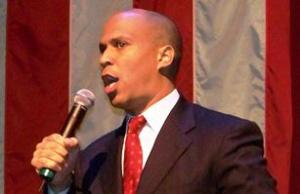
Cory Booker was among Democratic presidential contenders sparring over drug and criminal justice policy Wednesday night. (CC)
Dick Durbin Files Marijuana Rescheduling, Research Bill. The second highest ranking Democratic senator, Dick Durbin of Illinois, filed a bill Wednesday that would move marijuana from Schedule I of the Controlled Substances Act to the less restrictive Schedule III. It would also require the National Institutes of Health (NIH), Centers for Disease Control, and Substance Abuse and Mental Health Services Administration to come up with a marijuana agenda that lays out top research priorities. That would include studies looking into health conditions that marijuana is most likely to treat and the "long-term effects of cannabis use, including dose-response relationship and the connection between cannabis use and behavioral health."
Democratic Candidates Clash Over Marijuana, Drug Policy at Debate. The second night of the Democratic presidential debates Wednesday saw contenders clash on marijuana and criminal justice policies, with several candidates, including Sens. Cory Booker (D-NJ) and Kamala Harris (D-CA) attacking former Vice President Joe Biden for his criminal justice past, and for his present unwillingness to go past federal marijuana decriminalization to ending federal pot prohibition. Rep. Tulsi Gabbard (D-HI) went after Harris over her years as a state prosecutor and California attorney general.
International
Boris Johnson's Top Aides Are Marijuana Legalization Proponents. Newly-annointed British Prime Minister Boris Johnson has hired longtime marijuana legalization proponent Brian Gibbs as one of his top policy advisors. Gibbs, who was Johnson's policing advisor when he was mayor of London, is currently head of policy at the Center for Medicinal Cannabis. A second Johnson aide, his new political secretary, Danny Kruger, has also called for an end to marijuana prohibition. Johnson himself has admitted smoking marijuana but now opposes its legalization: "It was jolly nice. But apparently it is very different these days, much stronger. I've become very illiberal about it. I don't want my kids to take drugs," he has said.
(This article was prepared by StoptheDrugWar.org's 501(c)(4) lobbying nonprofit, the Drug Reform Coordination Network, which also pays the cost of maintaining this website. DRCNet Foundation takes no positions on candidates for public office, in compliance with section 501(c)(3) of the Internal Revenue Code and does not pay for reporting that could be interpreted or misinterpreted as doing so.)
back to top
Federal prosecutors accuse the president of Honduras of participating in a drug trafficking conspiracy, the US and China squabble over fentanyl, Colombia coca production declined slightly last year, and more.
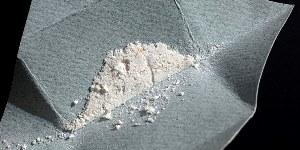
The Trump administration and China are sparring over fentanyl exports and who is responsible for the opioid crisis. (CC)
Iowa Panel Backs Including Chronic Pain, But Not PTSD, Opioid Dependency. The Iowa Medical Cannabidiol Board last Friday approved a recommendation to add chronic pain as a qualifying condition under the state's medical marijuana law. But the board drew criticism from patients advocates for not making the same recommendation regarding PTSD, opioid dependency, and other medical conditions. The board could revisit the issue in November if more data or research is available.
Nebraska Attorney General Argues Legalizing Medical Marijuana Is Unconstitutional. State Attorney General Doug Peterson (R) issued an opinion last Thursday saying federal law preempts state medical marijuana laws and that an effort to legalize medical marijuana in the state "would be, therefore, unconstitutional." On the other hand, more than 30 states have legalized medical cannabis since 1996, but the Supreme Court has never ruled that state legalization regimes are preempted by federal law. [Ed: This Cato brief by Vanderbilt law profession Robert Mikos explains why federal law probably does not preempt state law in ways that would interfere with state legalization laws. -DB]
Foreign Policy
Trump Accuses China of Failing to Halt Fentanyl Exports to US. President Trump last Thursday accused Chinese President Xi Jinping of failing to honor a pledge to stem the flow of fentanyl from Chinese chemical factories to the United States. "My friend President Xi said that he would stop the sale of fentanyl to the United States -- this never happened, and many Americans continue to die," Trump said in a tweet. "We're losing thousands of people to fentanyl," he later told reporters. Xi had promised Trump in December that he would act, and China announced on May 1 that it had expanded its list of narcotics subject to state control to include more than 1,400 known fentanyl analogues.
China Rejects Trump Criticism on Fentanyl. Chinese state media fired back at President Trump on Sunday, with Xinhua editorializing that "the United States has only itself to blame" for the country's opioid crisis. A day earlier, Liu Yaojin, deputy director of the China National Narcotics Control Commission also hit back, saying "China is not the main resources of fentanyl in the United States… I think that the United States should solve the problem of the widespread abuse of fentanyl domestically."
[Ed: I've never been inclined to accept the word of China's government, much less of their counternarcotics officials. Nor, however, can one rely on President Trump's word about anything either. On this one, the Chinese are probably more right than wrong. As this commentary by RAND scholars Beau Kilmer and Bryce Pardo suggests (following a report on Asian drug policy, link a few paragraphs in), China's regulatory capacity (unlike its surveillance capacity) falls very far short of what's needed to monitor all the chemical companies that could be involved in fentanyl, some of which produce it legally for the medicinal market. If they were to succeed in stamping out illicit production by such businesses, it could have unintended consequences, such as sparking increased activity by groups operating entirely outside the law. -DB]
International
UNODC Reports Slight Drop in Colombia Coca Production Last Year. The UN Office on Drugs and Crime (UNODC) reported last Friday that coca production had declined by a modest 1.2% in 2018 from record levels the year before. In areas where voluntary and forced eradication took place, production dropped 18%, but that was largely offset by increases in areas dominated by violent drug trafficking organizations.
Honduran President Accused of Drug Conspiracy by US Prosecutors. In documents filed in federal court in New York City last Friday, prosecutors refer to Honduran President Juan Orlando Hernandez as a co-conspirator in a drug trafficking scheme with his brother, Juan Antonio Hernandez, and former President Porfirio Lobo "to use drug trafficking to help assert power and control in Honduras." It says that the president and his predecessor "relied on drug proceeds" to fund political campaigns and cites "evidence of high-level political corruption." The US government has been a staunch supporter of Hernandez's government, pouring millions of dollars into security cooperation to stop cocaine headed to the US from South America.
back to top
A key Republican senator signals an openness to marijuana banking reforms, a Florida state rep files a decriminalization bill, the first shipments of medical marijuana have gone out to Louisiana dispensaries, and more.
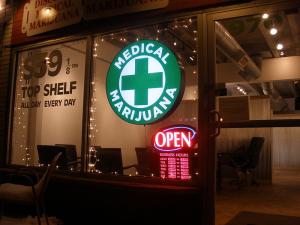
Medical marijuana dispensary sales should begin this week in Louisiana. (Creative Commons)
GOP Senate Committee Head Signals He's Open to Marijuana Banking Reforms. Sen. Mike Crapo (R-ID), head of the Senate Committee on Banking, Housing and Urban Affairs, has indicated that he agrees that barring the legal marijuana industry from access to financial services is not viable and that he's open to reforms around that problem. But he also said he doesn't necessarily support the SAFE Banking Act (S 1200), currently the leading vehicle for banking reforms. "We now need to, I think, move forward and see if there's some way we can draft legislation that will deal with the issue," Crapo said late last week.
Florida Decriminalization Bill Filed. Rep. Shevrin Jones (D-Broward County) filed a bill Monday that would decriminalize small-time marijuana possession in the state. Under the bill, possession or delivery of less than 20 grams would be a noncriminal violation with no jail time. "We must restore justice to our broken criminal justice system," Jones said in a press release. "For far too long, communities of color have been disproportionately impacted by laws governing marijuana, and we must end this injustice once and for all."
New Mexico Legalization Working Group Has Hearing Next Week. A working group on marijuana legalization appointed by Gov. Michelle Lujan Grisham (D) will hold its first hearing next Wednesday. The public has an opportunity to comment online or in person before the hearing. The panel will hear presentations from the Department of Regulation & Licensing and the Department of Health on regulatory frameworks and medical marijuana, respectively. Then the panel will consider multiple topics surrounding possible legalization. Grisham has said that the goal of this working group is to create a bill that would go before the legislature by January 2020, which is the start of the 30-day session.
Medical Marijuana
Louisiana Sees First Medical Marijuana Shipment to a Dispensary. At least nine medical marijuana dispensaries are set to open this week and begin selling product after GB Sciences, one of two state-licensed growers, began shipping to them on Tuesday. The move comes after state regulators completed final tests and cleared the shipments for release.
back to top
Luxembourg is moving to be the first European country to legalize marijuana, Hondurans take to the streets to protest their "narco" president, a New Mexico judge opens the state's medical marijuana program to out-of-staters, and more.
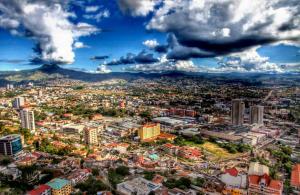
Tegucigalpa
New Mexico Judge Broadens Medical Marijuana Program. A New Mexico judge has ordered state officials to issue medical marijuana cards to all qualifying patients, including those who live outside the state. The ruling came in response to an emergency petition filed by patients, after authorities failed to act on a state law which took effect in June that removed the state residency requirement.
Utah Supreme Court Rejects Bid to Overturn State Law That Replaced Prop 2. The state Supreme Court on Tuesday rejected a petition that sought to overturn the state law that replaced Proposition 2, the ballot initiative to legalize medical marijuana. The legal challenge, filed by a group called The People's Right, aimed to restore Proposition 2 as it was approved by voters in November. But while the petition was unsuccessful, other supporters of the ballot initiative say they are optimistic that the law will see changes in the next legislative session.
International
Hondurans Protest Against "Narco" President. Thousands of protesters took to the streets of Tegucigalpa Tuesday to demand the resignation of President Juan Orlando Hernandez after US federal prosecutors filed court documents alleging his 2013 presidential bid was partly funded by drug trafficking money. Riot police clashed with demonstrators while attempting to disperse angry crowds with tear gas and water cannons. "The narco must go, JOH must go!" protesters chanted. Hernandez is a conservative ally of the US.
Luxembourg Set to Become First European Nation to Legalize Marijuana. Health Minister Etienne Schneider has confirmed plans to legalize marijuana, saying that residents 18 and over should be able to use and purchase it within two years. Draft legislation is expected to be unveiled later this year. Schneider said the legislation would likely include a ban on non-residents buying it, in a bid to discourage drug tourism, and that personal cultivation would also likely be prohibited.
back to top
That New Jersey legalization bill may yet rise from the dead, the CDC wants more naloxone access in rural areas, Ohio's largest city just quit prosecuting small-time pot busts, Bernie Sanders vows to use an executive order to federally legalize marijuana, and more.
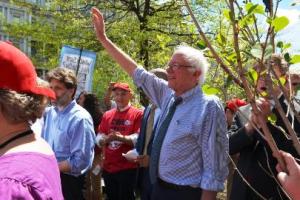
Bernie Sanders stays in the marijuana legalization vanguard. (Creative Commons)
Bernie Sanders Says He Will Legalize Marijuana Via Executive Order. If elected president, Vermont Sen. Bernie Sanders (I) will legalize marijuana by executive order, he told podcast host Joe Rogan in a recent interview. "When I ran for president for the Democratic nomination in 2016, I talked about a broken criminal justice system, which ends up having in the United States more people in jail than any other country," Sanders said. "And what I call for then, and I call for now, is the legalization of marijuana in America." It sounds like he wants to modify the Controlled Substances Act, which puts marijuana in the same category as heroin. "That is insane. Heroin is a killer drug," he said on the episode. "You can argue the plusses and minuses of marijuana, but marijuana ain't heroin. So we have to end that and that's what I will do as President of the United States. I believe we can do that through executive order and I will do that."
New Jersey Marijuana Legalization Effort May Come Back at Year's End. Although lawmakers gave up on trying to get a legalization bill passed three months ago, with Senate President Stephen Sweeney (D) saying it would likely be up to the state's voters at the 2020 election, Sweeney was singing a slightly different tune this week. "I'm not going to give up trying," he said. "I would love to do it. We'll make one more run at it."
Ohio's Largest City Quits Prosecuting Misdemeanor Marijuana Cases. Columbus City Attorney Zach Klein said Wednesday his office will no longer prosecute misdemeanor possession charges because current drug tests make it difficult to determine the exact amount of THC in the samples. This is a direct result of the legislature passing a law that legalizes hemp and CBD. Field drug tests cannot differentiate between hemp and recreational marijuana.
Heroin and Prescription Opioids
CDC Says Naloxone Not Getting Where Most Needed. In a new report, the Centers for Disease Control and Prevention (CDC) said prescriptions for the opioid overdose reversal drug naloxone doubled from 2017 to 2018, but rural counties, which are often hard-hit by the opioid epidemic, were far less likely to dispense the drug. The CDC is asking doctors and pharmacists to allow more access to the drug. "Efforts to improve naloxone access and distribution work most effectively with efforts to improve opioid prescribing, implement other harm-reduction strategies, promote linkage to medications for opioid use disorder treatment, and enhance public health and public safety partnerships," the CDC said.
Search and Seizure
Pennsylvania Court Rules Smell of Marijuana Doesn't Justify Car Search. Pennsylvania is a medical marijuana state and thus police cannot use the smell of marijuana as probable cause to search a vehicle once the suspect has showed proof he is a medical marijuana patients, a Lehigh County judge ruled last week. It was "illogical, impractical, and unreasonable" for police to suspect illegal activity once the medical marijuana card was produced, he said. "Pennsylvania legislators did not contemplate that people with legal medical marijuana cards would be arrested and prosecuted for possession of marijuana in a package that is not clearly marked with a dispensary name on it. Such actions are merely means of hampering the legalization of marijuana for medical purposes," the judge wrote as he threw out the marijuana charge.
International
British Columbia Nurses Endorse Drug Decriminalization. British Columbia nurses collectively called for the province to save lives by decriminalizing drug possession. "[We] call on the B.C. government to take immediate steps to move toward the decriminalization of people who use drugs," reads a statement issued Thursday by the Nurses and Nurse Practitioners of British Columbia (NNPBC), a professional organization with more than 3,800 members, and the Harm Reduction Nurses Association (HRNA), a national organization with members across Canada. "As nurses who work in B.C. and provide frontline care in the midst of this public health emergency, we see firsthand the impact of criminalization on our clients, on their families, on our practice and our communities," it continues. "As nurses, we see decriminalization as an essential step to remove barriers to care and support, reduce stigma and discrimination, improve health and socioeconomic outcomes, and work toward a more just and compassionate society."
(This article was prepared by StoptheDrugWar.org's 501(c)(4) lobbying nonprofit, the Drug Reform Coordination Network, which also pays the cost of maintaining this website. DRCNet Foundation takes no positions on candidates for public office, in compliance with section 501(c)(3) of the Internal Revenue Code and does not pay for reporting that could be interpreted or misinterpreted as doing so.)
back to top
There will be legal pot smoking at Outside Lands in San Francisco this weekend, the Trump administration moves forward with plans to allow drug testing of unemployment recipients, fighting over coca farms and cocaine smuggling routes in Colombia is generating large refugee flows, and more.
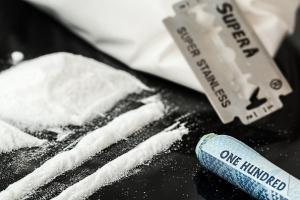
Prohibition-related violence in Colombia's cocaine trade is generating tens of thousands of refugees. (Pixelbay)
Outside Lands Becomes First Major US Music Festival to (Officially) Allow Marijuana. San Francisco's Outside Lands music festival, set for this weekend, will allow marijuana sales and consumption, making it the largest music festival of its size to do so. Some 200,000 people attended last year. Final approval from the state Bureau of Cannabis Control came on Wednesday.
Medical Marijuana
DC Will Now Accept Medical Marijuana Cards from Any State. In a press release Thursday, Mayor Muriel Bowser (D) announced that the District will now accept medical marijuana cards from any US state. "Non-residents needing their medication while they are visiting the District will be able to patronize the District's regulated marijuana dispensaries and obtain their medication," the press release said. Previously, the District recognized 19 other states' medical cards. Now, at least 27 states' cards will be recognized by the District's dispensaries.
Drug Testing
Labor Department Rule to Allow States to Drug Test Unemployment Recipients Now Under Review at White House. The White House budget office is reviewing a final Department of Labor rule that would allow states to drug test unemployment insurance recipients. The rule would allow states to drug test applicants in occupations where the employer "regularly conducts drug testing."
International
Colombia Cocaine Trade Fighting Generates Tens of Thousands of Refugees. According to a new report from Human Rights Watch, illegal armed groups fighting for control over the lucrative cocaine trade have forced some 40,000 people to flee their homes in the country's Catatumbo region near the Venezuelan border. The groups are fighting over territory armed by the former leftist guerillas of the FARC, who laid down their arms in a peace accord in 2016. The three groups named by Human Rights Watch are the Popular Liberation Army, the National Liberation Army, and a small group of FARC dissidents. Human Rights Watch accused the Colombian government of "not meeting its obligations" to protect civilians in the area.
back to top


